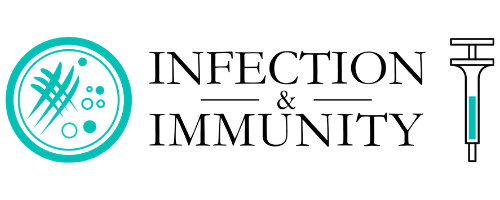Infection and Immunity Network
There couldn’t have been a more pressing time to be focussing on infection and immunity recently, and the Infection and Immunity (I&I) Network, who do just that, have had a very busy time responding to the pandemic among other global health challenges.
Professor Adam Finn, I&I Network steering group member (until June 2021) has successfully led Bristol UNCOVER - a research group set up to respond to COVID-19 – to discover many findings related to the virus, vaccines and treatments. Dr Andrew Davidson, also a Network steering group member, has been pivotal to Bristol’s response to the pandemic, being one of only two researchers at Bristol working on coronavirus prior to the COVID-19 pandemic. Many other UNCOVER members are also part of the I&I Network - co-lead Phil Bright and steering group members Kathleen Gillespie, Linda Wooldridge and Jamie Mann: scientists that work across a range of different disciplines. The overlap between groups such as Bristol UNCOVER and Networks like I&I have been central to Bristol being able to mobilise expertise so quickly to respond to the most pressing global health crisis in recent history.
As much as COVID-19 has seemed at times like the only health problem there is, the Infection and Immunity Network has been focussing attention more broadly to ensure that research continues to progress in other important areas. Dr Nihal Bandara’s (Bristol Dental School) article entitled Fluconazole resistance in Candida albicans is induced by Pseudomonas aeruginosa quorum sensing appeared in Scientific Reports and received an award for Top 100 downloads in Microbiology in 2020 from the journal. Another of Nihal’s papers, Biodiversity of the human oral mycobiome in health and disease which appeared in Oral Diseases, is among the top 10% most downloaded papers of last year.
“In depth understanding of the diverse communal interactions and interplays that these microbes elicit during the process of pathogenesis of infections and their elimination would immensely benefit in designing novel strategies in prevention and management of polymicrobial infections and in addressing the ever-rising pandemic of antimicrobial resistance.” Nihal Bandara.
Professor David Sheppard (School of Physiology, Pharmacology and Neuroscience) was awarded the Physiological Society's GL Brown Prize Lecture in recognition of his outstanding contribution to physiology though his research on the cystic fibrosis transmembrane conductance regulator, the epithelial anion channel defective in the genetic disease cystic fibrosis The GL Brown Prize Lecture series is aimed at an early career audience to stimulate an interest in physiology. Departments around the UK can invite the GL Brown Lecturer to their institutions to showcase their research.
World Tuberculosis Day, which takes place every 24 March, aims to raise public awareness about the health, social and economic consequences of Tuberculosis (TB). Led by Professor James Spencer in Cellular and Molecular Medicine, a group of researchers marked the day in this year with a dedicated Twitter campaign which the I&I Network got behind. Several projects in Bristol are seeking to develop innovative tools for faster and more accurate disease diagnosis; read the full story.

